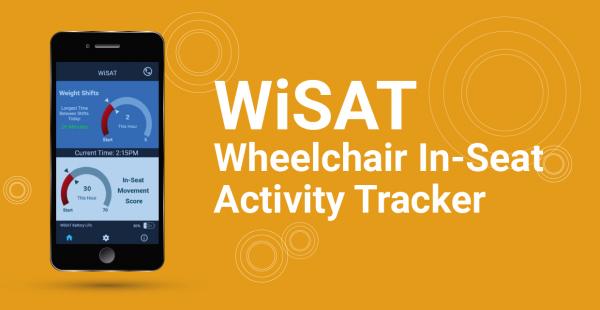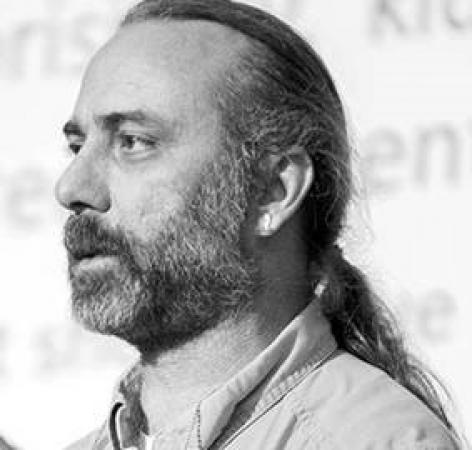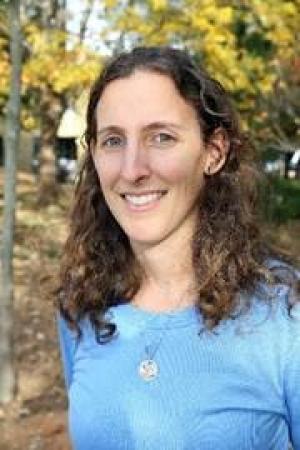The Coulter Translational Program is excited to announce its funding collaboration with the Rick Hansen Institute (RHI). With funding support from RHI and project management from the Coulter Translational Program, principal investigators Sharon Sonenblum and Stephen Sprigle of the Georgia Tech REARLab are pursuing the commercialization of WiSAT, their Wheelchair In-seat Activity Tracker. Additional funding has been provided by the National Institutes of Health and the Department of Defense.
WiSAT is a seating system for wheelchair users to track activity and receive feedback through a smartphone app to encourage weight shifts and reduce pressure ulcer formation. The Coulter Translational Program will provide mentorship and project management to guide the WiSAT team through commercialization milestones with the goal of bringing this technology out of academia and into the marketplace.
“The Rick Hansen Institute is committed to identifying and supporting innovative research with commercial potential to benefit people with spinal cord injuries, said Bill Barrable, CEO of the Rick Hansen Institute. “Pressure injuries (ulcers) are a debilitating and life-threatening complication; as many as 95% of adults with spinal cord injury will experience at least one in their life time. By partnering with the Coulter Translational Program, we are expanding our regional and national efforts, internationally. We are excited to support Drs. Sonenblum and Sprigle to accelerate commercialization of their WiSAT technology for wheelchairs. This technology is demonstrating real potential to help prevent this serious complication.”
“The Coulter Translational Program is pleased to grow our commitment to the translation of patient-impacting technologies toward the marketplace through this collaboration with The Rick Hansen Institute,” said Shawna Khouri, managing director of the Coulter Translational Fund. “Their philanthropic translational funding coupled with the Coulter Program’s commercialization expertise provides a critical combination of resources to create viable business opportunities for historically underserved clinical populations, like spinal cord injury and its secondary complications. This partnership with RHI has been invaluable as we work together to progress the WiSAT technology into the commercial sphere.”
###
The Rick Hansen Institute is a Canadian-based not-for-profit organization that drives innovation in spinal cord injury research and care. Their generous funding for this project, in part with the Canadian Government through Western Economic Diversification Canada, helps support their goal to improve the lives of people living with spinal cord injuries around the world.
The Coulter Translational Program is a partnership with the Wallace H. Coulter Department of Biomedical Engineering at Georgia Tech and Emory University to fund and support the translation of technologies that address an unmet clinical need and will lead to a commercial product. The primary goal of the program is to improve patient care through collaborations between clinicians and engineers to commercialize biomedical technologies. To learn more about the Coulter Translational Program and its funding and partnership opportunities, visit www.coulter.gatech.edu.
Media Contact
Walter Rich
Keywords
Latest BME News
Jo honored for his impact on science and mentorship
The department rises to the top in biomedical engineering programs for undergraduate education.
Commercialization program in Coulter BME announces project teams who will receive support to get their research to market.
Courses in the Wallace H. Coulter Department of Biomedical Engineering are being reformatted to incorporate AI and machine learning so students are prepared for a data-driven biotech sector.
Influenced by her mother's journey in engineering, Sriya Surapaneni hopes to inspire other young women in the field.
Coulter BME Professor Earns Tenure, Eyes Future of Innovation in Health and Medicine
The grant will fund the development of cutting-edge technology that could detect colorectal cancer through a simple breath test
The surgical support device landed Coulter BME its 4th consecutive win for the College of Engineering competition.










